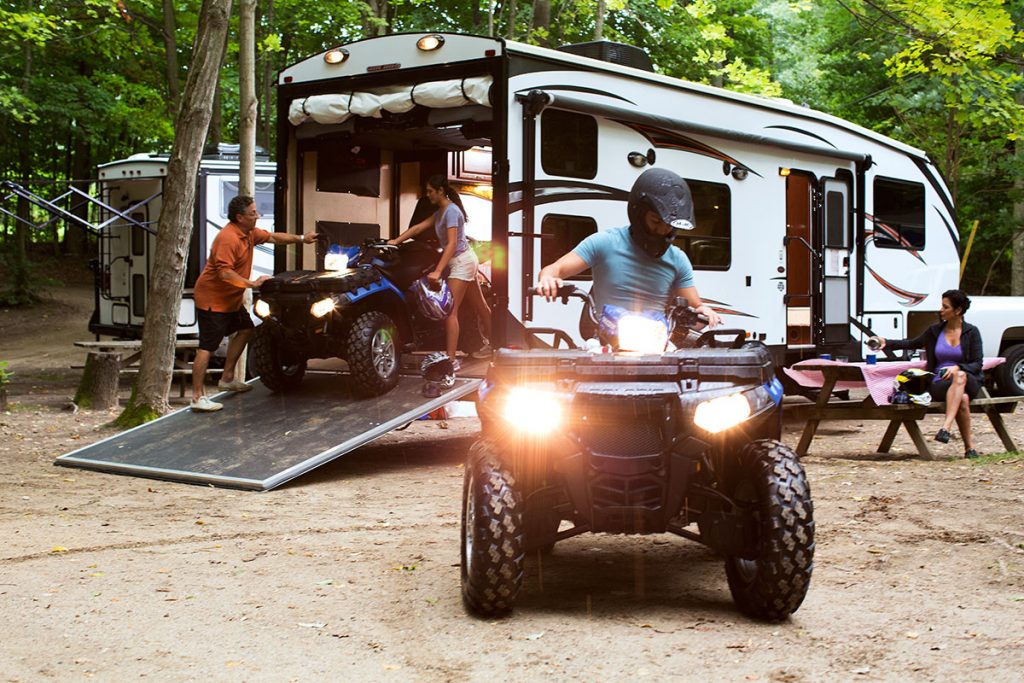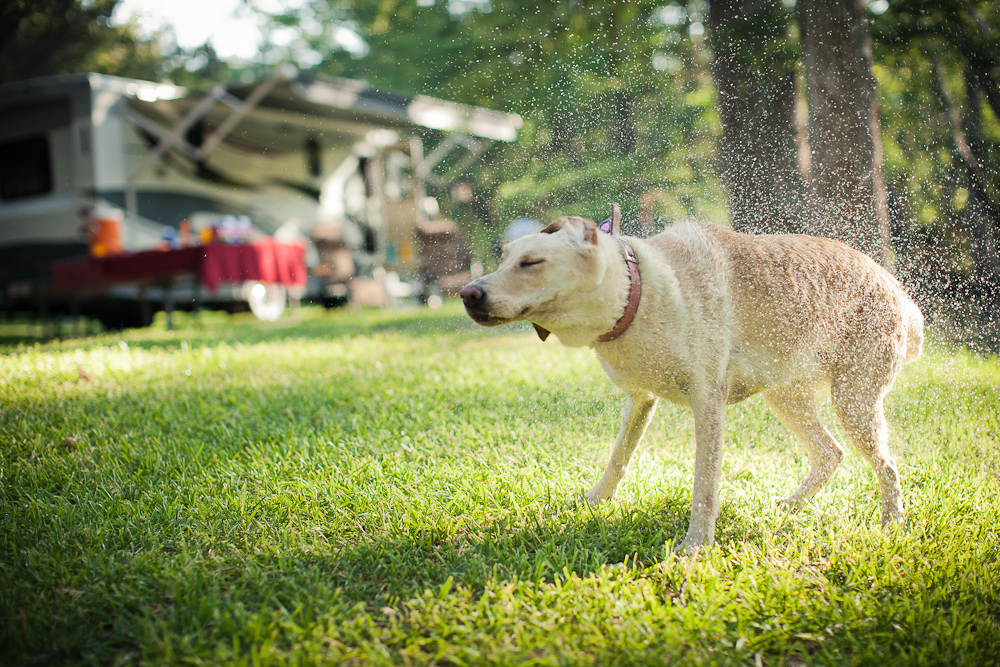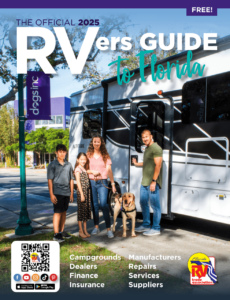Campground Etiquette
RV camping is popular throughout Florida, but there are tips and tricks that will make it more pleasant for you and the other campers. Here are some of the campground etiquette guidelines that are recommended by other individuals who enjoy traveling in a recreational vehicle.
Guideline 1: Get a Copy of a Campground’s Rules
Before visiting a campground, visit its website to learn its rules. If you can’t comply with the regulations, then you should look for a different place to stay to avoid any problems. Most campground managers will also provide a written brochure with the rules, and she may also have signs posted in various locations of the campground to help you remember particular guidelines.
Guideline 2: Follow the Speed Limits
 Look for the signs that are posted in the campground so that you can follow the speed limits. An important aspect of campground etiquette is to give pedestrians the right of way on the roads and sidewalks. It is especially important to remember that there are often children in the area who may forget to watch out for vehicles.
Look for the signs that are posted in the campground so that you can follow the speed limits. An important aspect of campground etiquette is to give pedestrians the right of way on the roads and sidewalks. It is especially important to remember that there are often children in the area who may forget to watch out for vehicles.
Guideline 3: Remain Quiet While Camping
While RV camping, you must make sure to respect others by remaining quiet early in the morning, during the evening and throughout the night. If you fail to follow this rule, then the manager of the campground may tell you to leave, and you are often reported to other campground managers.
Guideline 4: Don’t Invade Other Camper’s Spaces
When a campground has a lot of spaces available, you should avoid parking next to another recreational vehicle. The exception to this rule is when you are traveling with relatives or friends who want you to park near their campers.
Guideline 5: Avoid Bright Exterior Lights
While you might use exterior lights while sitting outside to consume a meal or enjoy nature, make sure to turn off the bright lights later in the evening. This can ensure that other campers aren’t bothered by the excessive amounts of lighting while they are trying to sleep.
Guideline 6: Are Pets Permitted at an RV Campground?
 Before bringing along a beloved pet to an RV campground, verify that the animal is permitted at the particular location. Some places may have restrictions concerning the size and breeds of dogs.
Before bringing along a beloved pet to an RV campground, verify that the animal is permitted at the particular location. Some places may have restrictions concerning the size and breeds of dogs.
Guideline 7: Alcoholic Beverage Regulations
Campground etiquette regulations may prevent the consumption of alcoholic beverages outside the camper. If the campground has this particular rule, then remain inside your camper while drinking, but also, don’t attempt to drive the recreational vehicle while you are intoxicated.
Guideline 8: Keep Your Campsite Clean
A campground will have a rule about keeping the site clean, so you must make sure to place trash in containers properly. In addition, if pets are permitted, then you should take the time to pick up the droppings.
Guideline 9: No Smoking Regulations
A campground for recreational vehicles may forbid smoking of any kind, so you should understand this regulation before your visit to the location. In some cases, a campground may have a designated area for smoking, and you must follow this rule or face eviction from the campground.
Guideline 10: Cooking Regulations
You may want to cook a meal outside of your recreational vehicle, but you must understand the campground’s rules about this. A campground manager may provide grills for public use, but you must use a certain type of fuel. Don’t build campfires with wood or other substances without the permission of the campground’s management.
Guideline 11: No Physical Altercations
While visiting a campground, you should avoid any physical altercations with other campers or the people with whom you are traveling in your recreational vehicle. If you get into a fight at the campground, then the management’s security personnel will ask you to leave, or alternatively, someone will contact the local police for assistance.
Guideline 12: Use a Dump Station Correctly
A campground may have a dump station for emptying the waste containers of your recreational vehicle. You must pay a fee for using the dump station, and you should know how to empty the waste containers correctly. Never dump the waste from a recreational vehicle on the campground’s property.
Guideline 13: No Illegal Drugs
RV camping regulations will prevent the use of illegal drugs on a property, including inside a camper. Staying at a campground for recreational vehicles doesn’t mean that you don’t need to follow the state of Florida’s rules concerning the use of illegal substances.

